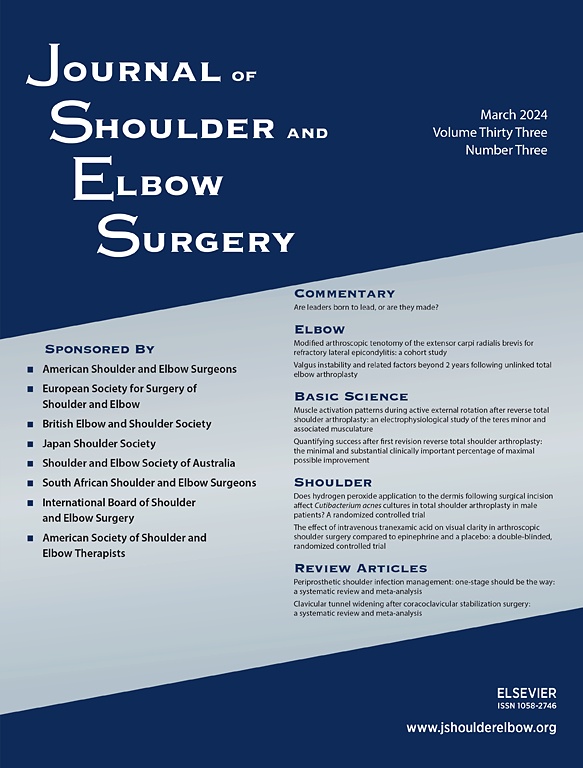
C. acnes decolonization with benzoyl peroxide vs chlorhexidine gluconate ahead of shoulder surgery

C. acnes decolonization with benzoyl peroxide vs chlorhexidine gluconate ahead of shoulder surgery
Neer Award 2018: Benzoyl peroxide effectively decreases preoperative Cutibacterium acnes shoulder burden: a prospective randomized controlled trial
J Shoulder Elbow Surg. 2018 Sep;27(9):1539-1544. doi: 10.1016/j.jse.2018.06.012Did you know you're eligible to earn 0.5 CME credits for reading this report? Click Here
Synopsis
80 patients scheduled for shoulder arthroscopy or arthroplasty were randomized to preoperative skin washing over the first 2 days before surgery and on the day of surgery consisting of either 5% benzoyl peroxide or 4% chlorhexidine gluconate. Patients had samples taken immediately after perioperative skin preparation from skin sites corresponding with anterior, lateral, and posterior arthroscopic ...
To view the full content, login to your account,
or start your 30-day FREE Trial today.
FREE TRIAL
LOGIN
Forgot Password?
Explore some of our unlocked ACE Reports below!

Learn about our AI Driven
High Impact Search Feature
Our AI driven High Impact metric calculates the impact an article will have by considering both the publishing journal and the content of the article itself. Built using the latest advances in natural language processing, OE High Impact predicts an article’s future number of citations better than impact factor alone.
Continue



 LOGIN
LOGIN

Join the Conversation
Please Login or Join to leave comments.